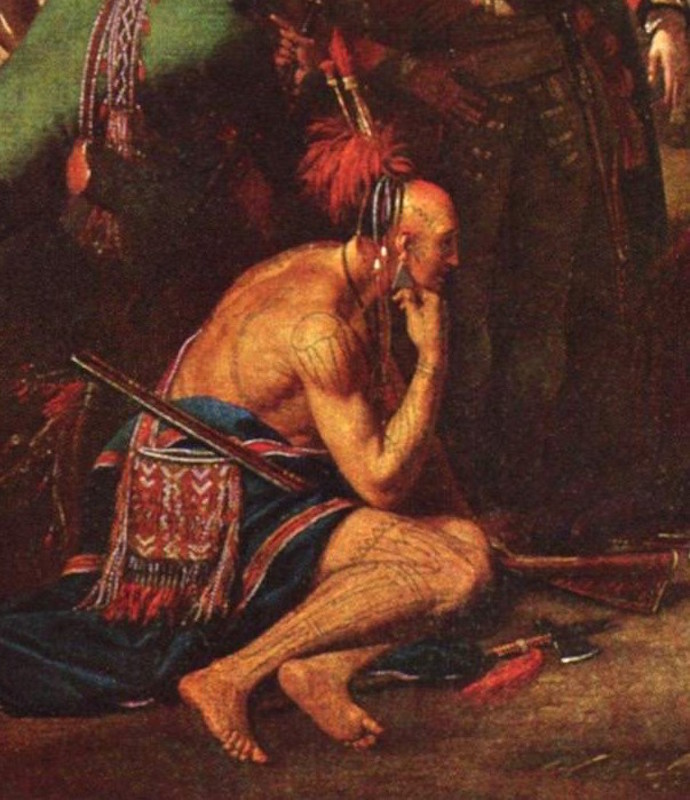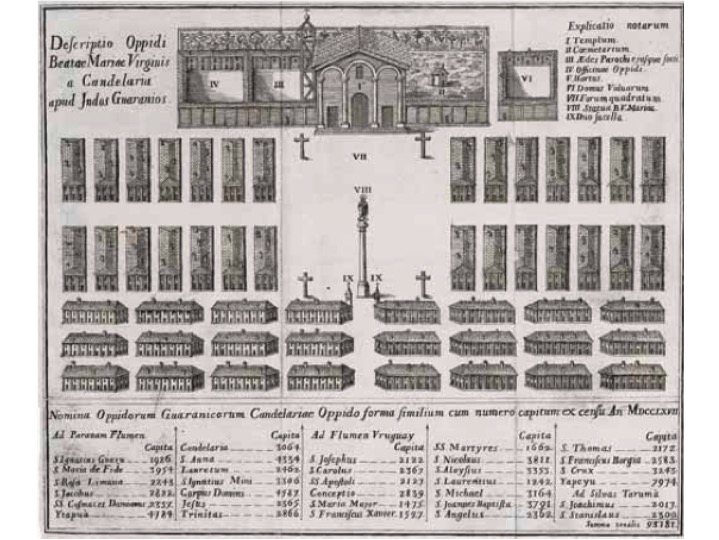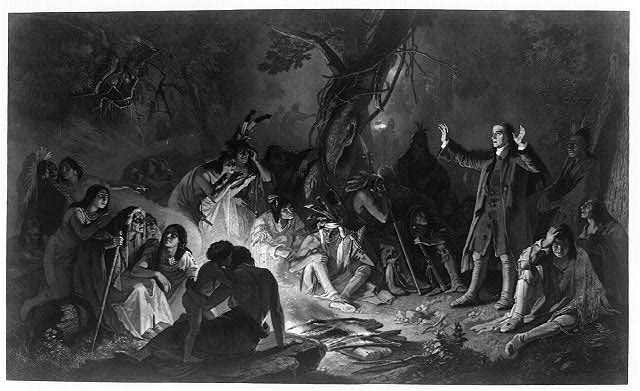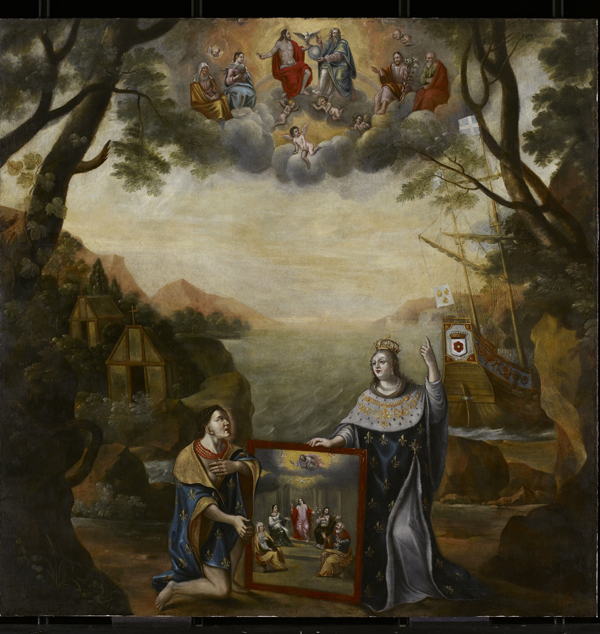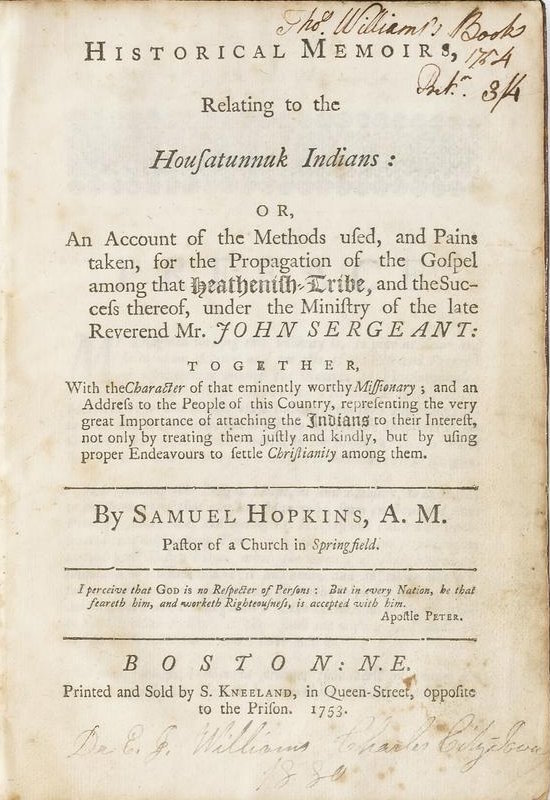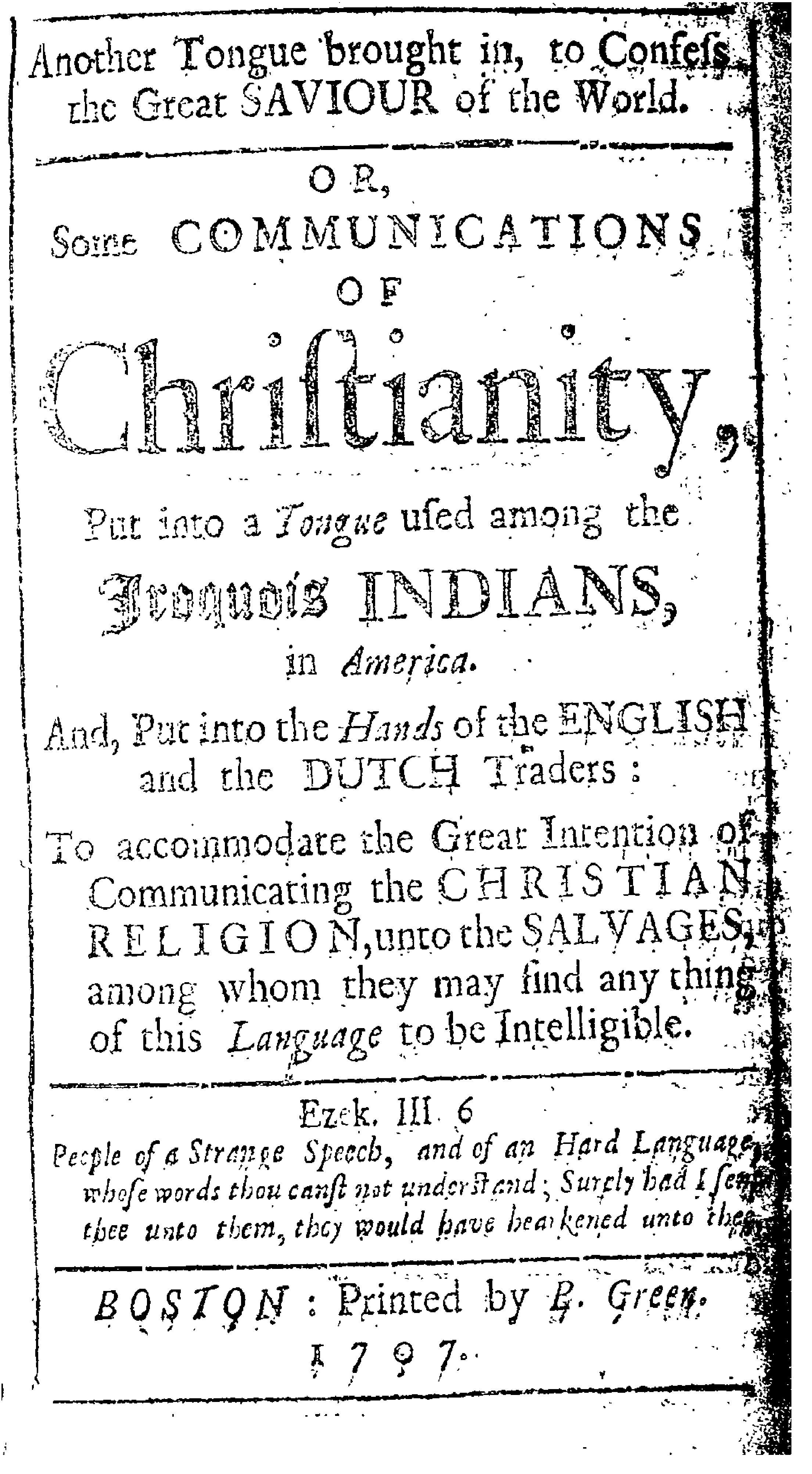‘The best thing we can do for our Indians is to Anglicise them in all agreeable Instances’: Missions to the New World and the Enlightenment
Project manager: Dr. Catherine Ballériaux
Duration of project: 15.10.2015 - 14.10.2018
My project explores and compares writings about Native American peoples by European thinkers and missionaries in roughly the first half of the eighteenth century. The study of the complex relationship between religious and Enlightenment thought in the Atlantic world brings to light the intellectual and political processes which shaped the Enlightenment's conception of Man and religion.
Project Description
My project explores and compares writings about Native American peoples by European thinkers and missionaries in roughly the first half of the eighteenth century. The 'savage critic' and the 'primitive' were indeed recurring themes in Enlightenment literature, and multiple Enlightenment thinkers, from Locke to Ferguson, made use of these tropes to criticise European mores or develop their theories about human nature and political systems. American natives occupied a place of choice in these writings.
At the same time, frontiers continued to expand in the Americas in the eighteenth century and missionaries continuously explored new territories, and frequently encountered new peoples or attempted to convert as yet unconverted groups. Notably, the Jesuits, Moravians, and Congregationalists were particularly active in present-day North America. How did Enlightenment authors, who had for the most part never been in touch with the natives, make use of missionary writings in their accounts? What role did the image of the American native play in shaping anthropological and philosophical views? And conversely, did Enlightenment modes of thought have an effect on the descriptions provided by missionaries, by contrast to the accounts elaborated in the seventeenth century? Did Enlightenment ideas have an influence on missionary practices?
Evolutions in Missionary Thought
This project uses a comparative method on two levels:
Firstly, it evaluates the evolution in the thought of missionaries from the seventeenth to the eighteenth century, and the nature of these changes in relationship to intellectual and political developments occurring in this era. Enlightenment ideas are central to this analysis. I assess if and to what extent a more 'secularised' approach to anthropology and social and political practice influenced the missions and shaped missionaries' reformation strategies. Catholicism as well as Protestantism, especially on the American continent, significantly evolved over the course of the late seventeenth and eighteenth century. In the seventeenth century, the perception of the nature of the natives by both Catholic and Calvinist thinkers relied on the idea of the universally fallen nature of man, and on the necessity to control and contain this fallen nature through artificial means, mainly education and politics.
Enlightenment Ideals
My goal here is to determine whether a more optimistic approach to anthropology, as frequently promoted by early Enlightenment thinkers, can be traced in missionary writings, and whether missionaries relied to a greater extent on human reason in their conversion strategies. In other words, did these new ideas about human nature translate into political and religious practice on the missions? On the other hand, did the 'secularisation' of political and anthropological thought pose a threat to missions? The conflict between Enlightenment thought and a form of Christianity focussed on the revealed Word did find its apogee in the second half of the century. The Jesuit were expelled from most Catholic states and hence their missions in 1767, in large part due to their work in Paraguay. The Great Awakening and the success of Enlightenment thought in North America represented two radicalised aspects of the evolution of intellectual worldviews in Anglophone America, but their relationship was also significantly more complex than has hitherto been acknowledged. This project evaluates whether these tensions were already present in the early eighteenth century, and their potential effect on the missions.
New Imperial Practices
From a political perspective, England, France, and Spain attempted to increase their hold over their colonies and to reinforce the presence of state agents on the frontier in the late seventeenth and early eighteenth centuries. Many of the reforms wished for or implemented in the Americas were based on more autocratic and 'pragmatic' ways of thinking about colonial worlds and their material and human resources. Many of these state policies were influenced by Enlightenment thought, notably the economic theories of the Scottish Enlightenment. In British America, the Glorious Revolution and its religious consequences also significantly influenced the practice of empire. Conflicts between the three countries under study also had an important impact on frontier missions, as the natives played a pivotal role in these wars, and as soldiers progressively encroached on areas that had so far been the preserve of missionaries. The consequences of these new imperial practices for the missions (compared to the relative independence from which missionaries benefitted in the seventeenth century) need to be analysed in order to understand the potential effect of Enlightenment thought on missiologies.
Evolutions in Missiologies
These imperial practices also had a significant influence on the ways in which missionaries, European officials, settlers, and natives envisioned the notions of citizenship and community building. All colonial actors had very specific ideas about the ways in which the natives should be included in - or excluded from - colonial communities, and these competing views contributed to debates about the nature of the political community and its members. The study of missions does show that imperialism could be translated into a multiplicity of diverging practices, and that colonialism played a central role in the development not only of Enlightenment thought, but also of political (and absolutist) thought.
Influence of Missions on the Enlightenment
The second level of my comparative method seeks to establish whether the trope of the 'savage critic' or of the 'primitive' present in Enlightenment literature was inspired by missionary writings, thus illustrating the potential influence of religious writings on the Enlightenment(s). Seventeenth-century missionary writings contained a strong utopian dimension. Was this trope still present in the eighteenth century, and what was its relationship to Enlightenment writings? How was the idea of the 'primitive' used in political and social thought, and how did this relate to policies implemented with the natives and missionary practices on isolated frontier missions?
To conclude, this research attempts, through the study of missions, to evaluate the relationship between Enlightenment and religious thought in the eighteenth century -a complex question, as the historiography shows. Both currents of thought were concerned with human nature and the ways to control or help this nature flourish at the social, intellectual, and political levels. The 'primitive' peoples of the Americas were considered ideal case studies for philosophical enquiries into human nature and the validity of different political systems. Did the peculiar Atlantic context, and access to natives who were often considered untainted by European civilisation bring a different perspective to the question and definition of human nature and to anthropological and psychological theories about man and his relationship to authority, political or divine? Studying writings on the American natives illustrates how religious, philosophical, and political concerns interacted in a complex and turbulent Atlantic world, and how these interactions in turn had a great influence on European and Euro-American thought. It also indicates that the study of missions is an essential tool to apprehend the intellectual and political processes which shaped the Enlightenment's conception of Man and religion.
Previous Work
Reformation Strategies: Conversion, Civility, and Utopia in Missionary Writings about the New World, c. 1610 - 1690.
My doctoral thesis analysed French, Spanish, and English missions to the New World in the 17th century. Through a comparison of Catholic and Calvinist missionary strategies between c. 1600 and 1690, this thesis argued that missions are fundamental to understand Reformation and Counter-Reformation Christianity. Whereas the historiography of missions tends to treat them as the religious wing of imperial history, my thesis sought to study missions as the imperial wing of religious history. Missionaries shared common intellectual and theological influences. Their Christian humanist heritage and insistence on the necessity of reform, emphasising an experiential, practical vision of Christianity, led them to elaborate conversion strategies that encompassed not only religious, but also political and social changes. By a careful analysis of Catholic and Calvinist missiologies, this study argued that their common strategies - habituation, segregation, social and political regulations - stemmed from a shared intellectual heritage. From this perspective, conversion should be regarded not only as a sudden moment of religious epiphany through grace, but also as an attempt at a radical reformation of manners in the Erasmian sense of the term, which could be implemented through specific social and political structures. Conversely, since missions allowed religious reformers to build their Christian communities from the ground up, the essential differences in their soteriology have to be sought in the understanding of the nature and role of civility and political organisation in relation to religious conversion and godly life. Different understandings of the respective influence of human activity and God's will meant that the chronology of conversion and its relationship to moral law, as well at the understanding of what a civil community was, differed in both soteriologies. In the New World, where they were relatively free from external political pressures, missionaries had an opportunity to put into place not only the missiologies and ecclesiastical frameworks that they considered most appropriate, but also the political and social structures which they thought were most crucial for salvation. This is also what gives their work among the natives a utopian dimension. It was at the margins of empire that the essentials of Calvinist and Catholic soteriologies and political thought could be enacted and crystallized.


